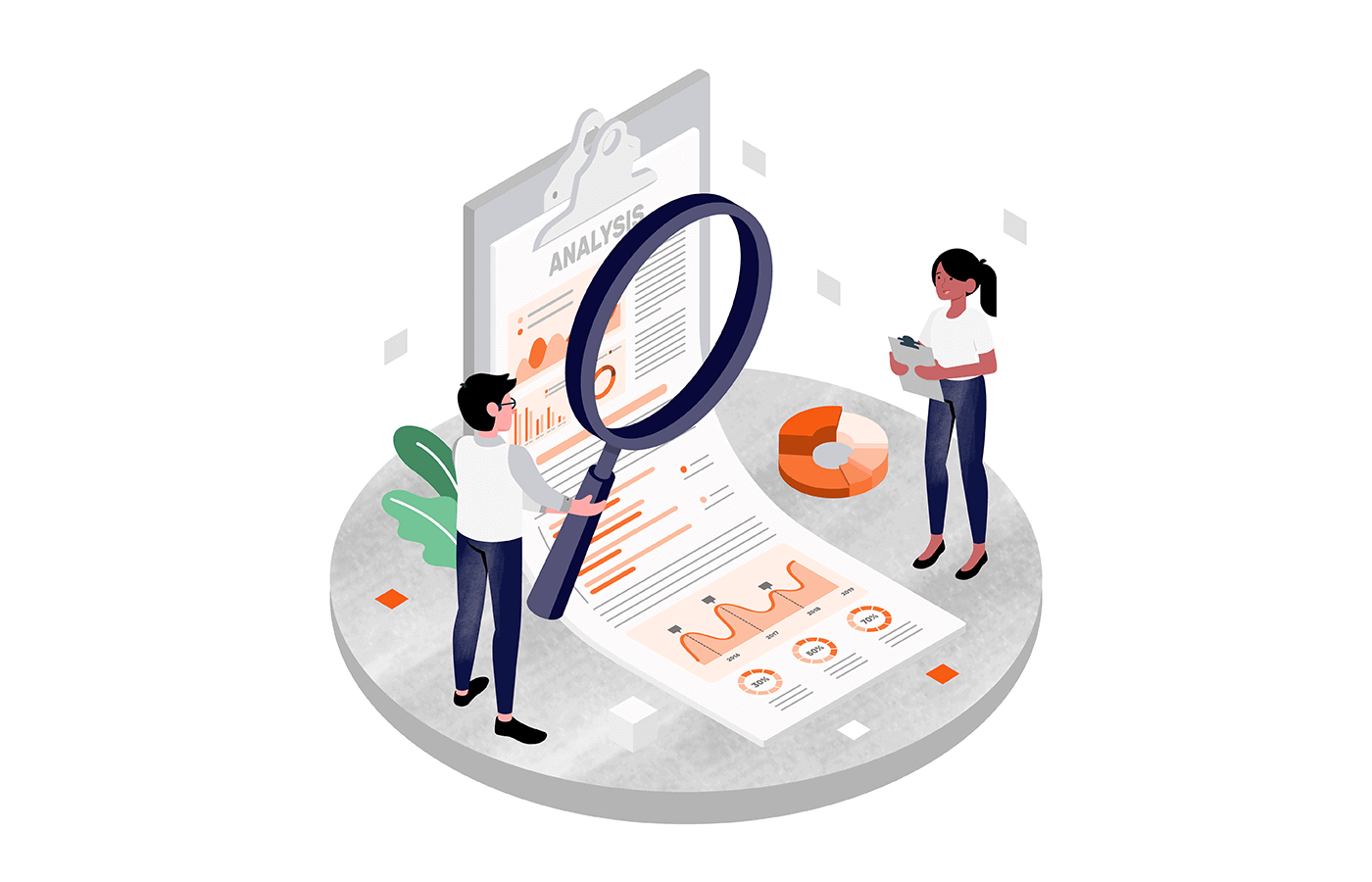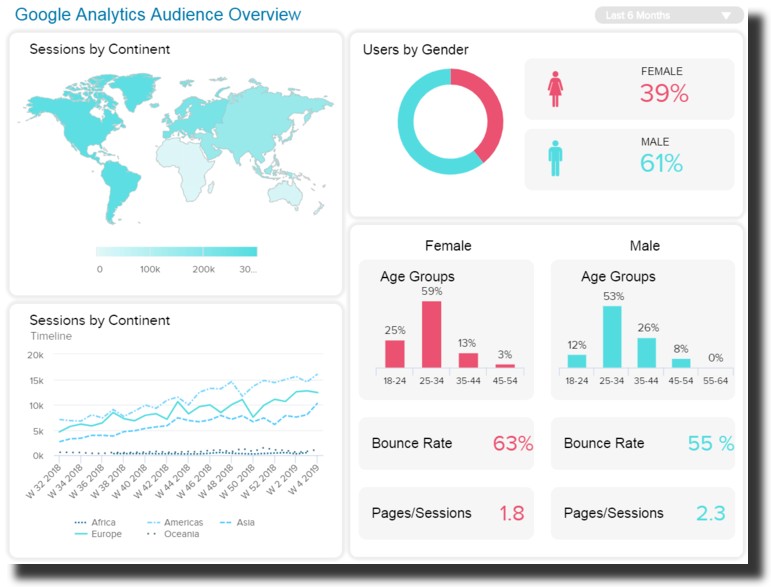Drive Growth and Technology Through Smart Analytics Applications
Drive Growth and Technology Through Smart Analytics Applications
Blog Article
Maximize Development: Exactly How Analytics Drive Better Techniques
By taking advantage of information insights, companies can fine-tune their functional methods, expect market changes, and boost client engagement. The difficulty lies not only in accumulating data but in effectively analyzing it to drive concrete outcomes.
Understanding Information Analytics
Data analytics is an organized computational evaluation of data that allows organizations to uncover significant patterns and insights. This procedure incorporates a range of strategies, consisting of analytical evaluation, predictive modeling, and information mining, which collectively aim to transform raw data into workable details - Analytics. By utilizing these methods, organizations can make informed choices that are rooted in empirical proof as opposed to intuition alone
The structure of information analytics depends on its ability to deal with vast amounts of info from diverse sources. This consists of organized information, such as databases, and disorganized information, including social networks communications and consumer comments. Via making use of specialized software program and tools, analysts can remove and process this information successfully, determining fads and correlations that may not be immediately evident.
Understanding data analytics additionally includes recognizing the importance of data quality and honesty. Precise and trustworthy information is vital for meaningful evaluation; therefore, companies need to execute robust information governance practices. Moreover, the repetitive nature of analytics enables constant improvement and improvement of techniques, ensuring that organizations remain dexterous when faced with changing market characteristics and customer behavior.
Secret Advantages of Analytics

Among the key advantages of analytics is its ability to give actionable insights. Organizations can swiftly analyze huge amounts of information, discovering patterns that might not be instantly obvious. This aids in preparing for market changes and adapting approaches as necessary. Furthermore, analytics fosters a culture of evidence-based decision-making, lowering reliance on instinct and guesswork.
One more considerable benefit is enhanced consumer understanding. Analytics tools enable businesses to segment their target market, track customer actions, and customize advertising efforts. This targeted method not just improves customer involvement yet likewise drives greater conversion prices.

Implementing Analytics Techniques
To totally realize the advantages of analytics, organizations have to take on structured techniques for implementation. This starts with clearly defining objectives that align with more comprehensive organization goals. By developing particular, quantifiable end results, organizations can focus their analytics initiatives on locations that yield the highest possible return on financial investment.
Next, companies ought to focus on data governance to make certain the integrity and protection of the data being analyzed. This entails establishing up protocols for data collection, storage, and accessibility while adhering to pertinent laws. Ensuring top quality information is crucial for producing purposeful insights.
In addition, cultivating a society of data-driven decision-making is important. This needs training workers to translate analytics findings and encouraging collaboration across departments. They are a lot more likely to integrate insights into their everyday operations. when teams recognize the worth of analytics.
Finally, organizations should on a regular basis evaluate and fine-tune their analytics techniques. The landscape of information and innovation is continually advancing, visit the website and staying versatile will certainly permit companies to leverage brand-new tools and methods efficiently. By applying these structured techniques, organizations can make the most of the influence of their analytics initiatives and drive sustainable development.
Devices for Efficient Evaluation
Efficient analysis counts on a range of tools that help with the removal of understandings from data - Analytics. These devices can range from easy spreadsheet applications to innovative device learning systems, each offering a special function in the analytical procedure
Information visualization software application, such as Tableau and Power BI, plays a vital duty in changing complex datasets into understandable graphical depictions. These devices enable experts to identify patterns and fads rapidly, enabling even more informed decision-making.
Statistical evaluation software application, like R and SAS, offers advanced capacities for conducting thorough evaluations, consisting of regression, theory testing, and anticipating modeling - Analytics. These functions empower companies to draw significant verdicts from their data, recognizing possible opportunities and risks
Additionally, data source management systems such as SQL have a peek at these guys and NoSQL data sources give the required facilities for keeping and querying large volumes of information effectively. They make certain that information is organized and accessible for evaluation.
Last but not least, organization intelligence systems integrate various data resources, offering a comprehensive view of find out here now organizational efficiency. By making use of these devices successfully, organizations can improve their analytical abilities, allowing them to create approaches that optimize growth and enhance overall performance.
Study of Success
Effective organizations usually utilize information analytics to drive impactful methods, as confirmed by a number of notable case researches. By employing these understandings, Netflix has actually efficiently customized its content recommendations, resulting in raised individual interaction and subscriber retention.

Furthermore, Starbucks utilizes information analytics to determine ideal store places and fine-tune its product offerings. By examining consumer demographics and acquiring patterns, Starbucks efficiently identifies high-potential markets and tailors its food selection to regional tastes, driving sales and consumer loyalty.
These study show that reliable use of information analytics can result in strategic advantages, fostering advancement and growth within organizations throughout numerous industries.
Verdict
In conclusion, the assimilation of analytics right into organizational approaches substantially enhances decision-making procedures and cultivates lasting development. The effective execution of analytics devices better sustains dexterity and development, making it possible for companies to browse competitive landscapes with higher accuracy.
Data analytics is a systematic computational evaluation of data that allows organizations to reveal purposeful patterns and insights.Comprehending information analytics also includes identifying the significance of information top quality and stability. Precise and trusted information is crucial for purposeful evaluation; hence, organizations need to execute robust data governance techniques.Following, companies need to focus on data administration to guarantee the stability and security of the data being evaluated.Effective companies frequently utilize data analytics to drive impactful approaches, as evidenced by several noteworthy case studies.
Report this page